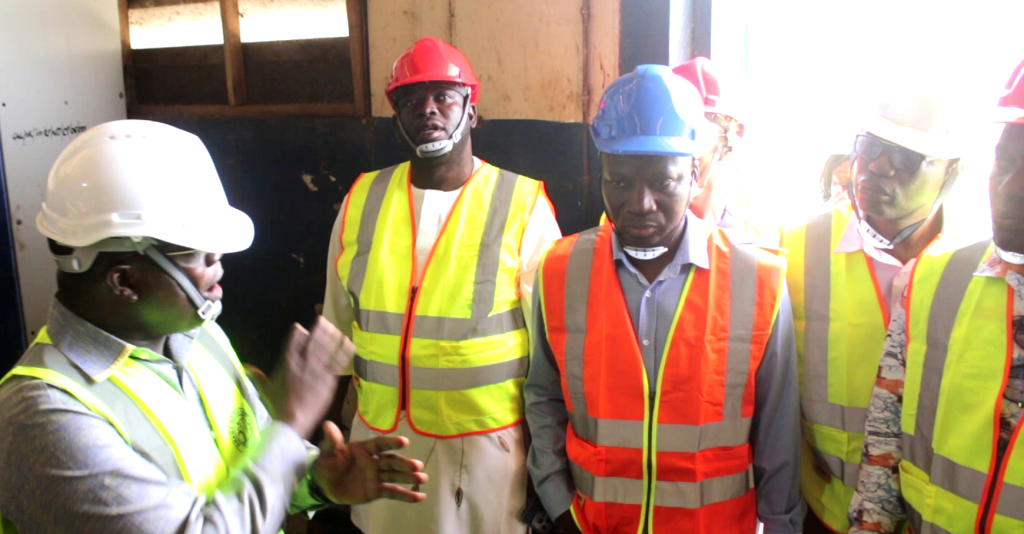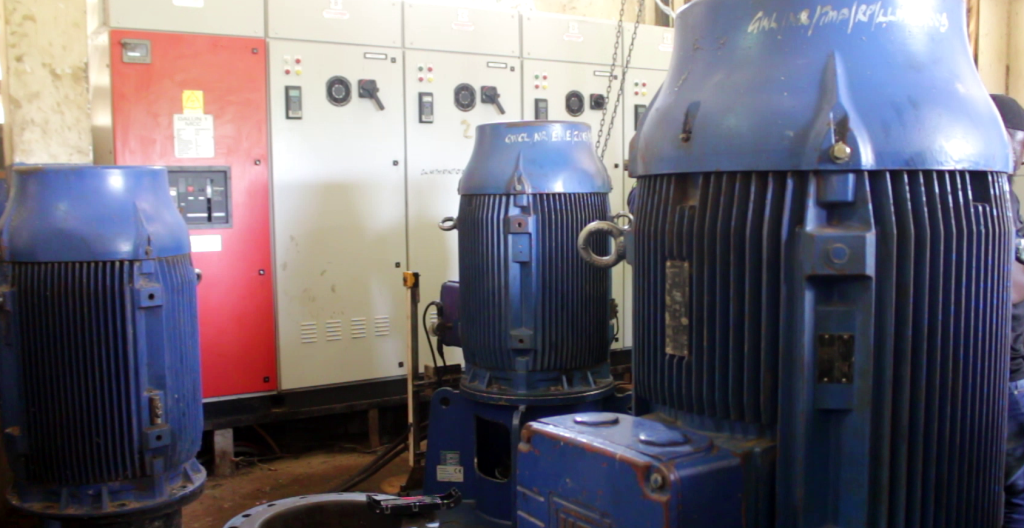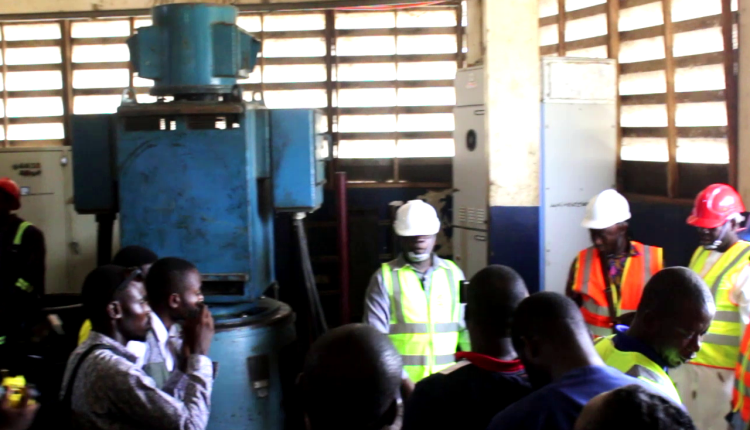Residents of Tamale and surrounding districts will continue to grapple with acute water shortages unless the government urgently invests in upgrading Ghana Water Limited’s (GWL) infrastructure, particularly at the Nawuni intake point.
Ghana Water Limited is currently using outdated pumps and treatment plants, some of which were installed as far back as 1972, to serve a growing population of over 1.4 million people in Tamale and nearby areas.
This dire situation came to light during a working visit by the Parliamentary Select Committee on Sanitation and Water resources to the Nawuni intake and Dalun treatment plants in the Kumbungu District.
The Northern Regional Chief Manager of GWL, Mr. Stephen Amihere-Mensah, revealed that the original plant was constructed in 1972 to produce just 13,000 cubic meters of water daily for a population of fewer than 100,000.

GWL NR Manager explaining aged pumps current situation to the committee
In 2008, the facility was expanded to handle 35,000 cubic meters per day to cater to approximately 400,000 residents. However, there has been no further expansion since then despite the population having more than tripled.
“What you saw at the intake point are the same old pumps from 1972. We are still using them. A newer pump installed in 2015 has not proven to be as robust and breaks down frequently,” Mr. Amihere-Mensah told the committee.
He emphasized that the current infrastructure lacks the capacity to meet the daily demand of approximately 90,000 cubic meters, with GWL only able to supply around 35,000 cubic meters on average.
Power Supply and Other Challenges
Mr. Amihere-Mensah also cited frequent electricity interruptions from the Northern Electricity Distribution Company (NEDCo) as a major challenge, severely hampering their ability to operate efficiently.
“We’ve written to the Public Utilities Regulatory Commission (PURC) to ensure that NEDCo provides a dedicated and uninterrupted power supply, but we are still waiting. Without reliable electricity, we can’t pump the required volumes,” he added.
Sand Winning Threatens Water Quality
Another pressing issue is the illegal sand winning around the White Volta basin, which threatens the sustainability of the water source. Mr. Amihere-Mensah praised the new Dalun Chief for his proactive role in combating the practice.
“I’ve been here for about three years. It used to be worse. Thankfully, the new Dalun chief is enlightened and supportive. We’ve seen a significant reduction in sand winning activities, although a few recalcitrant individuals still operate upstream,” he noted.
GWL he said is currently collaborating with the Water Resources Commission, Catholic Relief Services (CRS), and the Kumbungu District Assembly to get rid of sand-winning operations upstream. He also suggested more public education to help address the problem.
Parliamentary Committee Support
Speaking to the media during the two-day visit, Hon. Kwabena John Oti Bless, Chairman of the Parliamentary Select Committee on Sanitation and Water, said the visit followed numerous complaints from Tamale residents, especially during the dry season.
“The only way Parliament can take informed action is by seeing and understanding the challenges ourselves. We’ll prepare a detailed report for the House and lobby the relevant ministries and agencies to address the issues,” he stated.
He assured the public of the government’s commitment to resolving the crisis, revealing that there is an ongoing arrangement with the European Union (EU) and other international partners to secure funding.
“This is a new era. President John Dramani Mahama is a committed leader. He assured during his September 10, 2025, media engagement that Tamale, Yendi, and Damongo water issues are priority projects under his administration. We’ll push for their swift release,” Hon. Oti Bless affirmed.
He also stressed the need for stronger regulation on environmental protection, adding that the committee would work with the Water Resources Commission and local assemblies to enact by-laws criminalizing upstream sand winning.
“There’s no illegal mining here, but the turbidity levels of the water are unacceptable. The Water Resources Commission must act quickly to stop further degradation of our water bodies,” he added.



